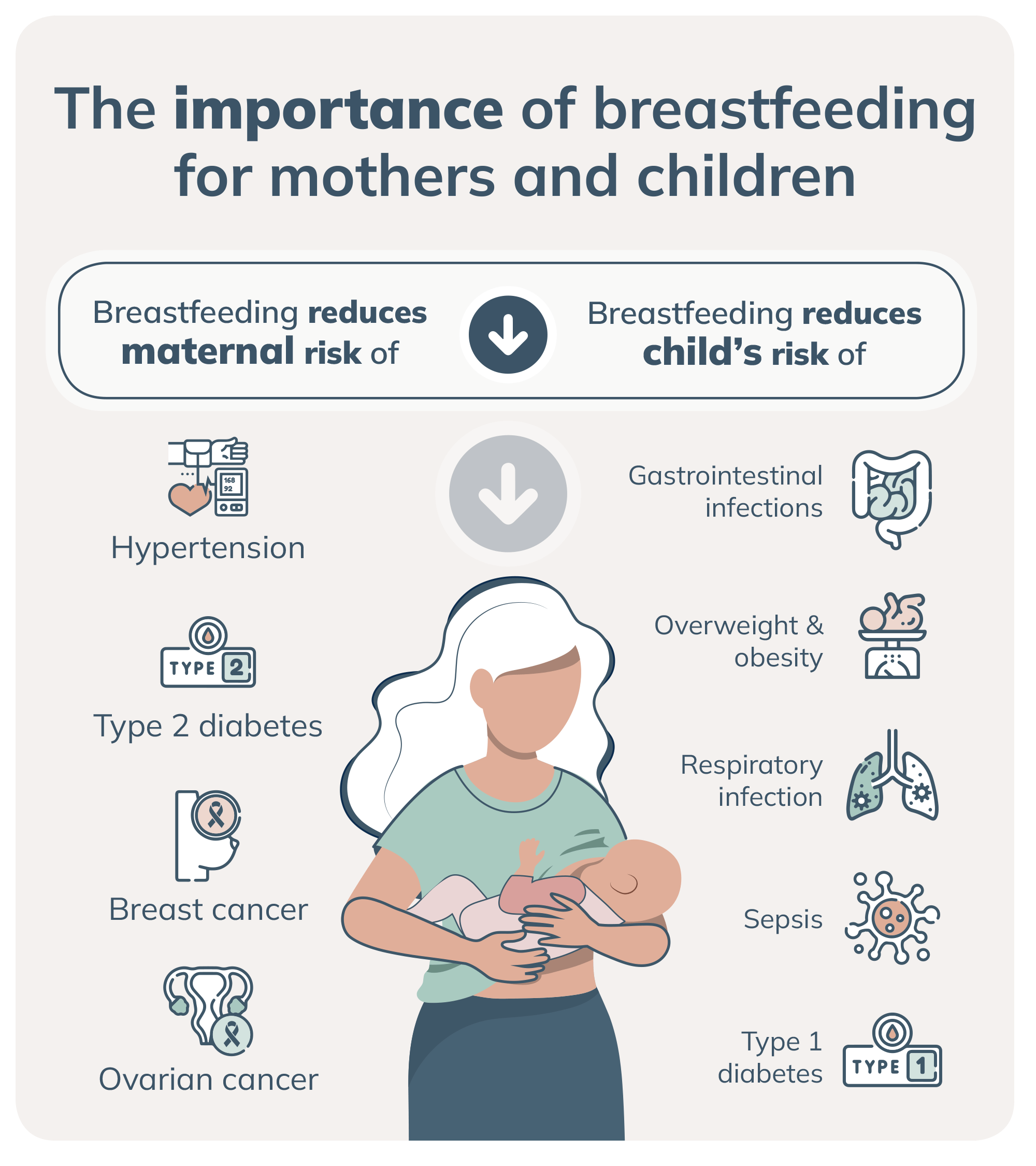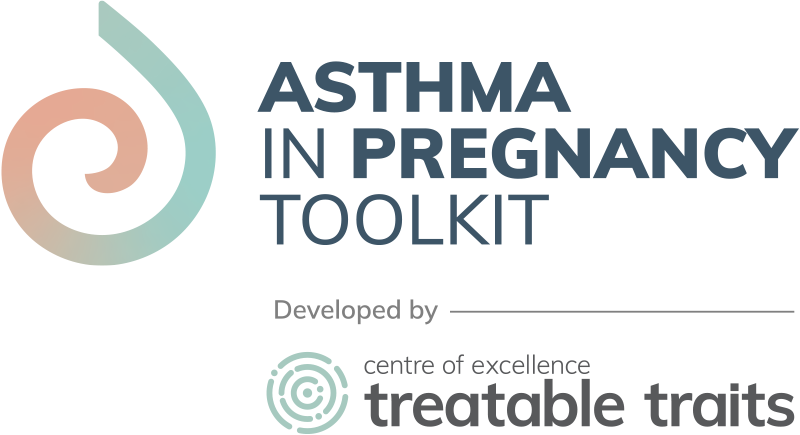Key messages
- Breastfeeding among women who have asthma is well below current WHO recommendations.
- Breastfeeding may mitigate the increased risk of adverse respiratory-related outcomes in their offspring
- Any breastfeeding is beneficial, while longer duration breastfeeding and exclusive breastfeeding may provide further benefit.
- Dietary restrictions during breastfeeding are not recommended, or evidence based, with regards to allergy or asthma prevention in the child.
- A varied maternal diet should aim to follow evidence-based dietary guidelines to ensure sufficient nutrition and hydration for the mother to support breastfeeding and recovery in the postpartum period.
- Women should be supported and encouraged to breastfeed their child in whatever capacity they can.
- Consideration of comorbidities, and additional breastfeeding support, may be needed; however, research in this area is warranted.
- Most asthma medications are safe to continue during breastfeeding

Health benefits for mother and baby
Breastfeeding is the physiological norm, but for many reasons, not all women choose to, or are able to breastfeed. However, a multitude of benefits to breastfeeding have been well established including societal, economic, environmental and health benefits (View infographic). Breastfeeding is beneficial for the health of both mother and child (Australian Breastfeeding Association), including facilitating the mother-infant bond, providing a high-quality source of nutrition and immune factors and reducing post-partum weight retention.
Research has found that compared to infants who were not breastfed, breastfeeding was associated with a reduced risk for respiratory illnesses and chronic disease development in offspring, including obesity. There is evidence that these benefits are dose-dependent, with more breastfeeding being associated with a greater reduction in the risk of adverse maternal, neonatal and childhood health outcomes.
Breastfeeding rates are low in women with asthma
The World Health Organization (WHO) recommends infants be breastfed exclusively for the first six months of life, followed by the introduction of complementary foods whilst continuing to breastfeed to two years of age or beyond (WHO 2003). However, the rates of initiation and continuation of breastfeeding are much lower than recommendations, and even more so in women who have asthma.

Data represented from Council et al. 2019, Harvey et al. 2020.
